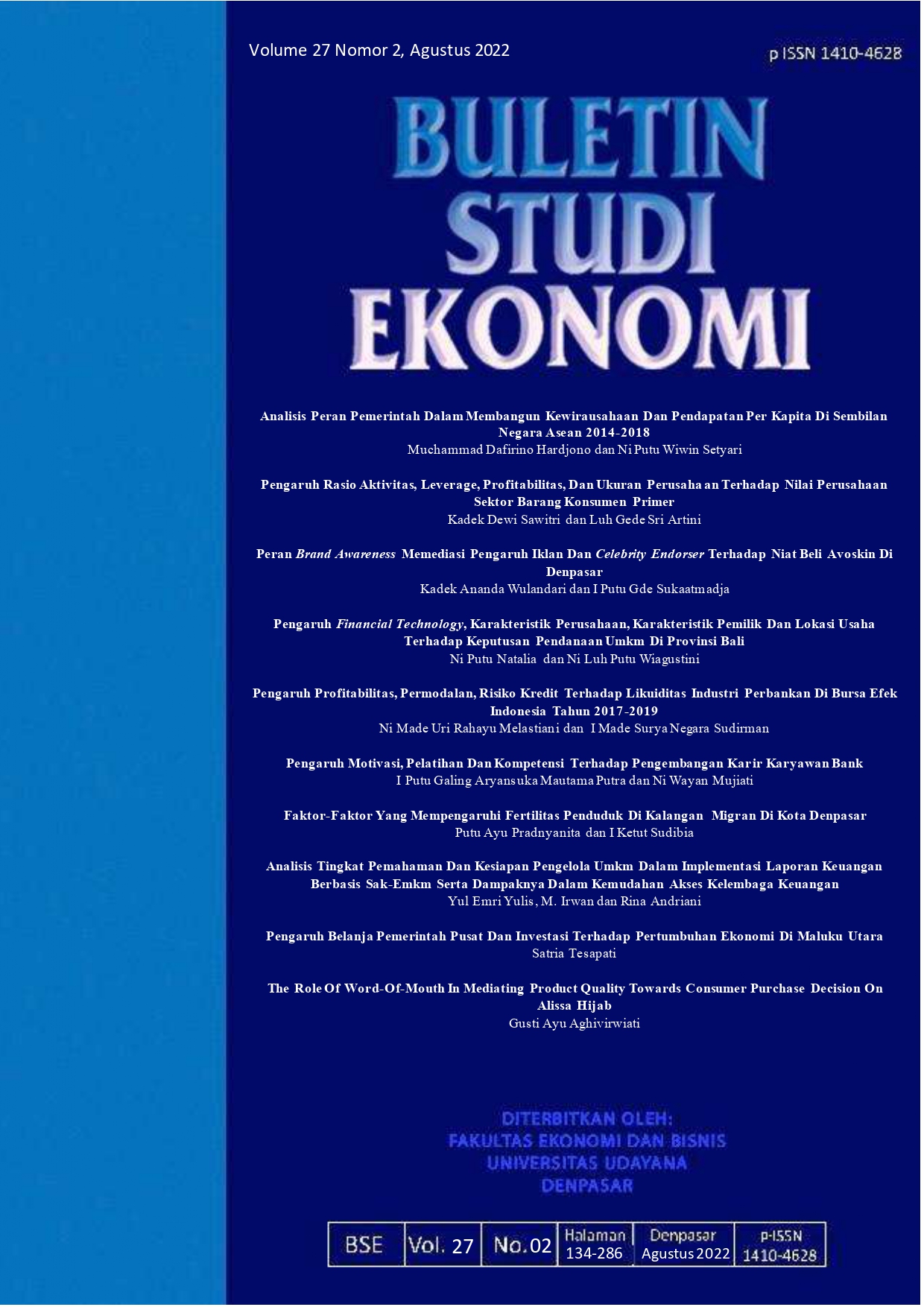FAKTOR-FAKTOR YANG MEMPENGARUHI FERTILITAS PENDUDUK DI KALANGAN MIGRAN DI KOTA DENPASAR
Abstract
The aims of this study were to determine the average number of children born alive among migrants, to determine the proportion of EFA migrants who are currently using contraceptives, and to analyze the effect of education level, employment status and many cultures children to age at first marriage and fertility rate among migrants in Denpasar City. The sample in this study was 120 of female migrant. The sampling technique is purposive sampling combined with accidental sampling. The data analysis technique used is path analysis. The results showed that the average number of children born alive by migrant EFA women was 3 children, the proportion of migrant EFA women who used contraceptives was 14.17 percent, and education level, employment status has a positive significant effect on the age at first marriage, the culture of many children has a significant negative effect on the age at first marriage, employment status, age at first marriage and the culture of many children has a positive significant effect on fertility rate the level of education has a negative significant effect on fertility, education level, employment status, and culture of many children no indirectly affect the fertility of migrant women's EFA through age at first marriage.




















